Sudan
Protests in Sudan continued on Friday, one day after long serving leader Omar Hassan al-Bashir, was toppled by the army, and replaced by a military council to lead a two-year transition.
Protesters, the army and the international community have all responded to the developments with one common message; a quick return to democratic processes.
More protests, casualties
Protesters rejected the military takeover and leadership of defence minister Awad Ibn Auf, taking to the streets on Thursday and Friday calling for the latter’s fall and quicker and more substantial change.
Sudan Police on Saturday said at least 16 people were killed, and 20 injured by stray bullets at protests and sit-ins on Thursday and Friday.
Police spokesman Hashem Ali said government buildings and private property were also attacked.
The Sudanese Professionals Association (SPA) said the military council was “not capable of creating change.” In a statement, the group restated its demand for power to be handed immediately to “a transitional civilian government.”
“We are committed to our demands that we submitted to the army,” SPA spokesperson Rashid Saeed said. “We call on the masses to stay on the streets until all the demands are met.”
Military council head rejected, resigns
Sudan’s defence minister and head of the transitional ruling military council, Awad Ibn Auf resigned his post, hours after the military pledged a quick return to civilian rule.
Lieutenant General Abdel Fattah al-Burhan Abdelrahman will be the new head of the council, Ibn Auf said. He also said Chief of Staff Kamal Abdelmarouf al-Mahi was relieved of his position as deputy head of the transitional military council.
“In order to ensure the cohesion of the security system, and the armed forces in particular, from cracks and strife, and relying on God, let us begin this path of change,” Ibn Auf said.
Ibn Auf was Bashir’s vice president and defence minister and is among a handful of Sudanese commanders whom Washington imposed sanctions on over their alleged role during atrocities committed in the Darfur conflict that began in 2003.
Who is in charge now?
Abdel Fattah Abdelrahman, who now leads the military council, was the inspector general of the Sudanese armed forces and its third most senior general. He is little known in public life.
He was the head of Sudan’s ground forces, a role in which he oversaw Sudanese troops who fought in the Saudi-led Yemen war. He has close ties to senior Gulf military officials as he was responsible for coordinating Sudan’s military involvement in the war.
International response
World powers, including the United States and Britain, said they supported a peaceful and democratic transition sooner than two years. China said it would continue to seek cooperation with Sudan regardless of the political situation.
The African Union also called on ‘ all stakeholders to engage in an inclusive dialogue’, while expressing its reservations on the military takeover as a solution to Sudan’s challenges.
Army is keen on return to civilian rule
Zain al-Abideen said the military council itself had no solutions to Sudan’s crisis and these would come from the protesters.
“We are not greedy for power,” he said. “We will not dictate anything to the people. We want to create an atmosphere to manage a peaceful dialogue”.
Zain al-Abideen said the military council would not interfere with a civilian government. However, he said the defence and interior ministries would be under its control.
UN briefed, transition period could be shortened
Sudan’s deputy U.N. ambassador, Yasir Abdalla Abdelsalam Ahmed, told the U.N. Security Council on Friday that any democratic process in the country required time, and he urged the international community to support a peaceful transition.
“No party will be excluded from the political process, including armed groups,” he told the council during a meeting on Abyei, a contested border region claimed by Sudan and South Sudan. The 15-member council convened later on Friday behind closed doors to be briefed on the latest developments in Sudan.
“Moreover, the suspension of the constitution could be lifted at any point and the transitional period could be shortened depending on developments on the ground and agreements reached between stakeholders,” the Sudanese envoy said.
The military council said earlier that it expected a pre-election transition to last two years at most or much less if chaos can be avoided. The head of the military council’s political committee, Omar Zain al-Abideen, said the council would hold a dialogue with political entities.
Bashir to face trial, not at ICC
The council said on Friday it would not extradite Bashir, who has been indicted by the International Criminal Court (ICC) in The Hague.
Bashir is facing an arrest warrant over accusations of genocide in Sudan’s Darfur region during an insurgency that began in 2003 and led to the death of an estimated 300,000 people. He denies the allegations.
The United Nations human rights office and Amnesty International have called upon the authorities in Sudan to cooperate with the ICC.
“We do encourage the authorities in Sudan to fully cooperate with the ICC, there is a Security Council resolution as far back as 2005 calling on the government of Sudan to fully cooperate with and provide assistance,” U.N. human rights spokeswoman Ravina Shamdasani told a Geneva news briefing on Friday.
Instead, the council said, Bashir would go on trial in Sudan. The deposed leader is yet to be seen since Thursday’s events. Ibn Auf said on Thursday that Bashir was being detained in a “safe place’, while Sudanese sources told Reuters he was at the presidential residence under heavy guard.
The council also did not invite Bashir’s National Congress Party to join a planned meeting with political entities, explaining that “it is responsible for what happened.”



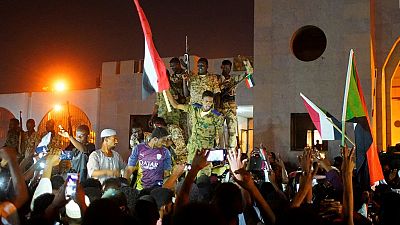

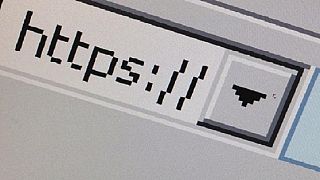
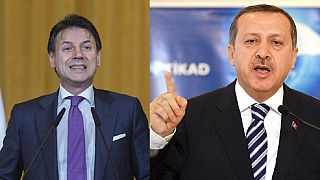
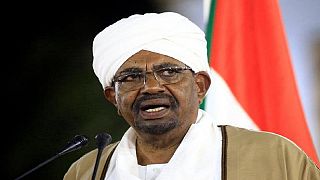
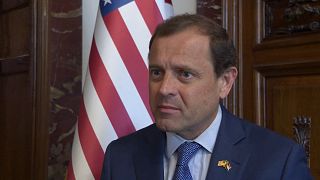
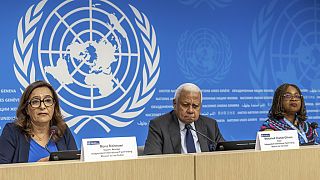
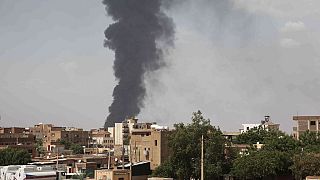
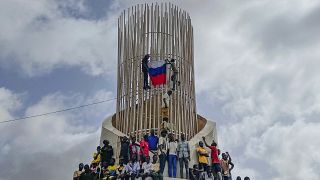
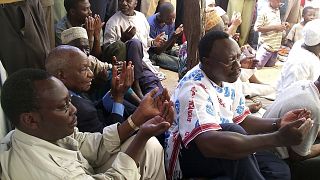
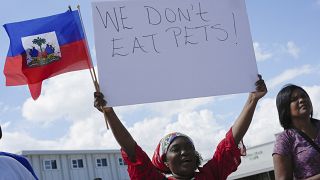
02:09
Russia vetoes UN resolution calling for immediate cease-fire in Sudan
01:00
Sudan war: UK, Sierra Leone to propose new resolution calling for 'end of hostilities'
01:02
Sudan rolls out malaria vaccines to bolster efforts to protect children
02:17
Nearly 500 million children live in conflict zones, face violations - Report
01:43
UNICEF calls for urgent action on Sudan’s “forgotten crisis”
01:08
Africa reports 134 new polio cases on World Polio Day